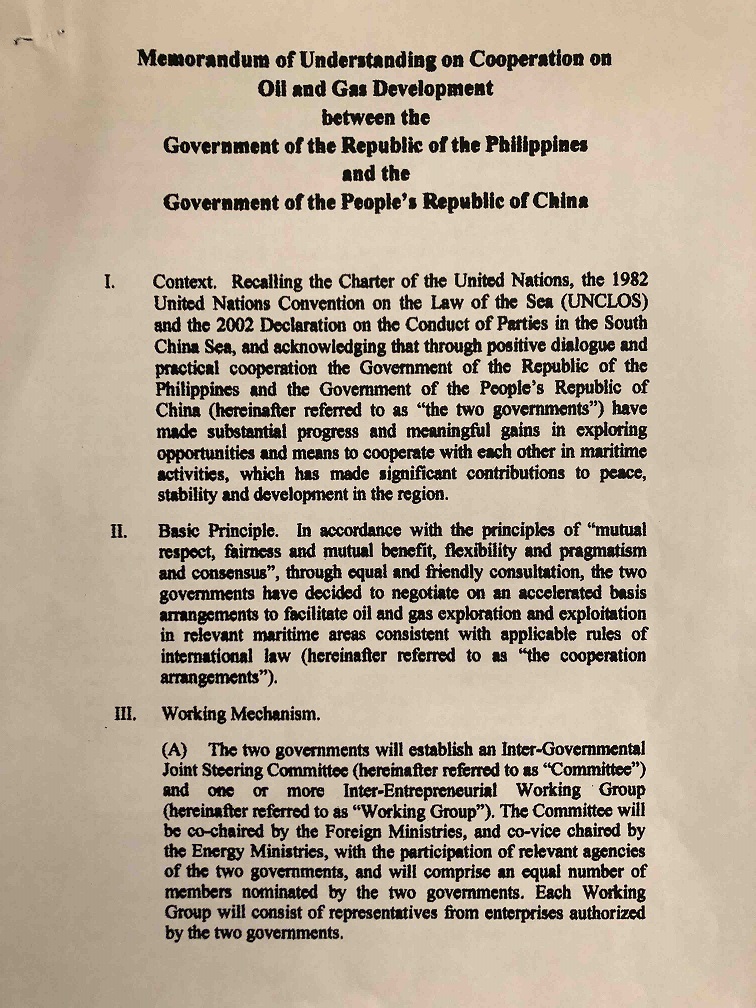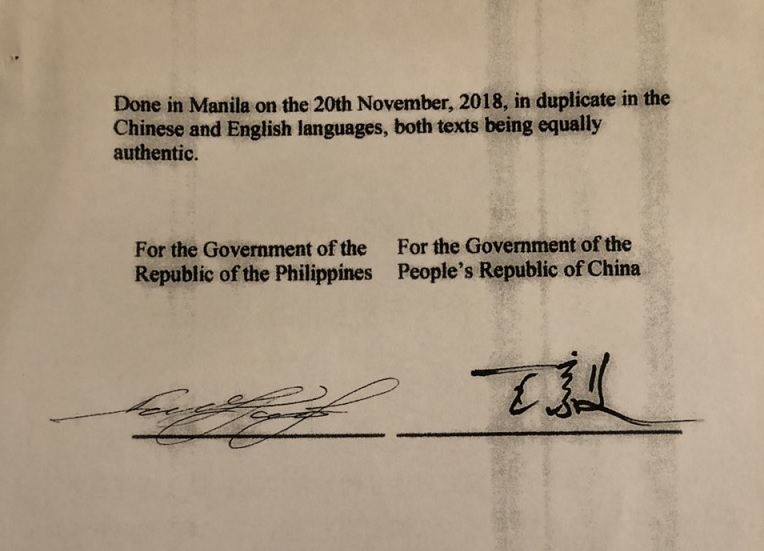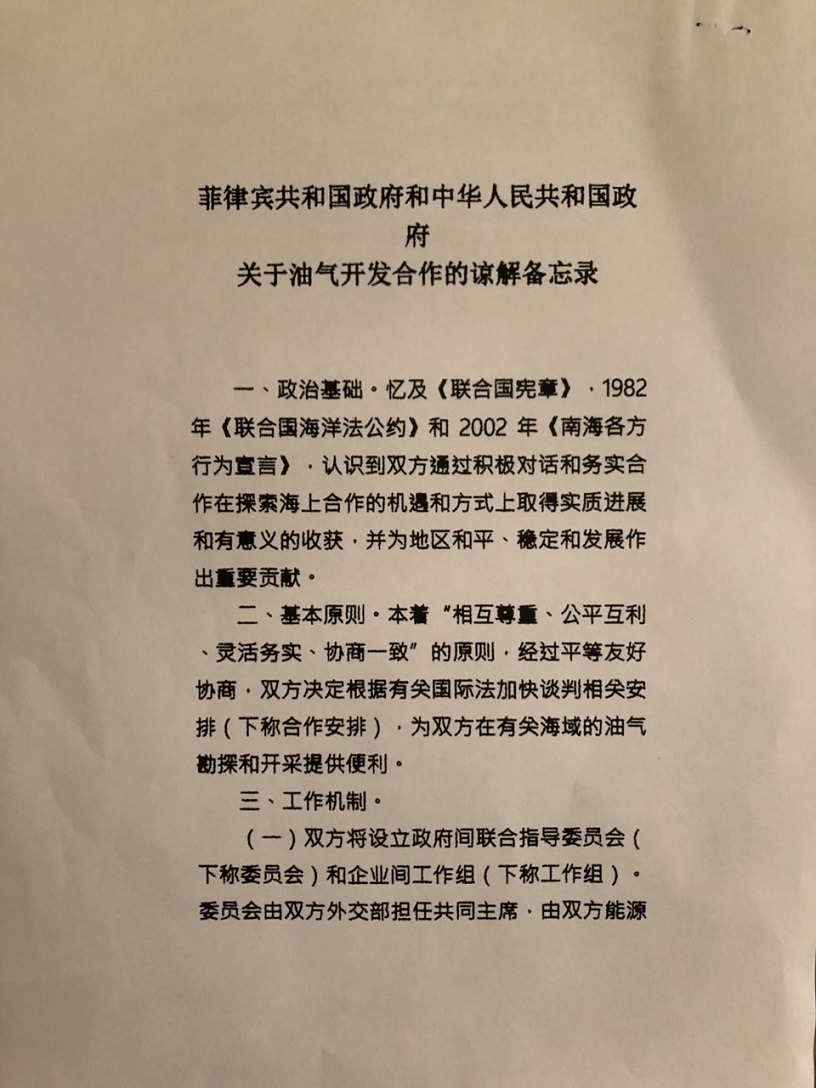The Philippines and China have taken the first step to formally cooperate and accelerate negotiations for joint exploration and exploitation in the contested South China Sea with the signing on Nov 20 of the Memorandum of Understanding on Cooperation on Oil and Gas Development by Foreign Secretary Teodoro Locsin Jr. and Chinese Foreign Minister Wang Yi.
The document, which is both in English and Chinese is an MOU, not a Memorandum of Agreement.
An MOU is a nonbinding agreement which describes in broad terms the desire, understanding and goals of both parties. An MOA contains commitments of each of the parties to accomplish stated goals.
The PH-China MOU on Gas and Oil development provides that “the two governments will endeavour to agree on the cooperation arrangements within 12 months.”
Although the MOU does not mention specific areas, the context recalls the 1982 United Nations Convention on the Law of the Sea (UNCLOS) and the 2002 Declaration on the Conduct of Parties in the South China Sea signed by China and member countries of the Association of Southeast Asian Nations (ASEAN), four of them claimants of portions of the South China Sea.
China claims almost the whole of the 3.5 million square kilometer body of water where more than $3 trillion worth of trade pass through every year. The Philippines claims part of it and refers to the area as the West Philippine Sea.
The MOU states that “the two governments have decided to facilitate oil and gas exploration and exploitation in relevant maritime areas consistent with applicable rules.
The Working Mechanism provides for the establishment of an inter-governmental Joint Steering committee and one or more inter-Entrepreneurial Working Group.
The Committee will be co-chaired by the Foreign Ministers, and co-vice chaired by the Energy Ministries with the participation of relevant agencies of the two governments and will comprise an equal number of members nominated by the two governments.
The Committee will be responsible for negotiating and agreeing on the cooperation arrangements and the maritime areas to which they will apply and deciding the number of Working Groups to be established and for which part of the cooperation area each working Group is established.
Each Working Group will negotiate and agree on inter-entrepreneurial technical and commercial arrangements that will apply in the relevant working area.
China authorizes China National Oil Corporation (CNOOC) to be the Chinese enterprise for each Working Group. The Philippines will authorize the enterprise or enterprises that has or have entered into a service contract with the Philippines with respect to the applicable working area or, if there is no such enterprise for a particular working area, the Philippine National Oil Company –Exploration Corporation (PNOC-EC) as the Philippine enterprise for the relevant working group.
The MOU states that it and all discussions, negotiations and activities of the two governments or their authorized enterprises “under or pursuant to this Memorandum of Understanding will be without prejudice to the respective legal positions of both governments.






